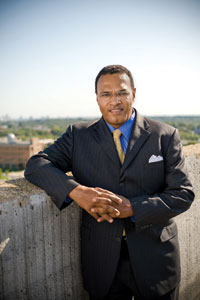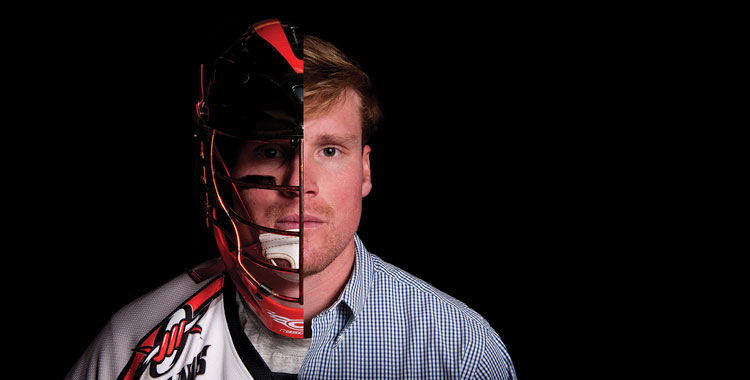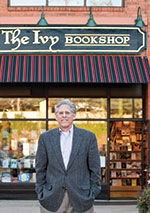 UMBC President Freeman A. Hrabowski, III, takes your questions.
UMBC President Freeman A. Hrabowski, III, takes your questions.
Q. With the many tools needed for success as president of a university, what’s that one thing you wish you’d known before you became UMBC’s leader?
— Israel Cross ’04, biological sciences, and Ph.D. ’10, gerontology
A. In the early years, I didn’t know as much about how to work effectively with public officials and the Board of Regents of the University System of Maryland to get support for the university.
In the early 1990s, we were still at a disadvantage when we were talking to the state legislature, partly because we didn’t have a large number of graduates in the state legislature. Now we do. We have several very well-positioned alumni in the legislature – and many more good friends of the university.
At that time, we were respected, but we did not have the benefits of older institutions. It took time to build relationships with people in positions of power – both in the legislature and in the corporate community. We were so young. We did not have large numbers of graduates who were CEOs. I didn’t realize when I started how important it was to have those relationships as a new president. For older institutions, when a new president comes in, those powerful people can open doors quickly. I had not thought through what challenges our situation would present. I knew that [former UMBC President Michael Hooker] had started building those relationships. And I knew what could be done to build those relationships. But we had a long way to go.
It simply took time for people to understand that UMBC’s success didn’t start in the late 1980s. Since the university’s founding in the 1960s, the institution has been transforming lives – and there were very many successful alumni from that era who were beginning to build their careers. We simply didn’t have a powerful enough mechanism to shed light on that initial success.
And bad news travels fast. The easiest thing to do is spread bad news. It’s like fire. In those early days, you were more likely to hear about someone who started at UMBC and then things didn’t go well than hear about someone who had excelled. Or you would hear about someone who started here and then transferred. It takes real initiative to spread good news. So getting over all the old stories, such as people thinking that UMBC was going to be an industrial park, was important.
The best part of my job in those early years was coming to appreciate the strength of UMBC’s academic program and the high quality of the faculty and staff that had come here to build the institution in the first 20 years. The early challenge for me was helping colleagues find ways to highlight that strength in different settings and have people believe that it was truly real and not just hype. That takes time. Reputations are not built in a few years. It takes a long time – either to go up or to go down. I had become president of a university that already had impressive substance. We simply needed to highlight that substance and build on it by attracting more resources.
You know, there is a level of greatness we’ve achieved at UMBC that people rarely appreciate, and it has to do with the spirit of this community. It’s a spirit in students, faculty, staff and alumni that focuses on serving. And we see it in so many different ways. The way people celebrate each others’ successes and don’t worry about getting credit. The idea of service, not only to our students, and to our colleagues, but service to the larger community. People at UMBC may have different points of view and disagree, but there is a belief in the importance of the common good. A belief in the importance of what makes us a great university and a great community.
To send a question to President Hrabowski, click here.
Tags: Winter 2013




